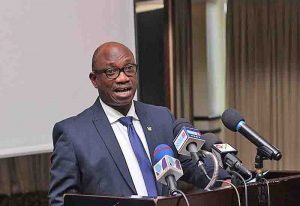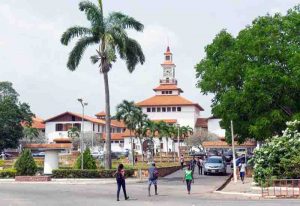The remarks made by Inspector General of Police (IGP) Dr. George Akuffo Dampare regarding disinformation and misinformation as national security threats call attention to a pervasive issue that transcends borders and societal contexts. His assertions highlight the critical need for a collective reevaluation of how information is disseminated and consumed, as well as the societal responsibilities associated with it.
Disinformation, which refers to the deliberate spread of false information, and misinformation, which is the unintentional dissemination of inaccuracies, have far-reaching implications not only for public opinion but also for the stability and security of nations. This perspective brings to light the potential risks that arise when a population is misled or misinformed, which can result in social unrest, polarization, and a breakdown of trust in institutions.
Dr. Dampare’s comments also touch upon a significant challenge faced by law enforcement in combating these phenomena: public backlash against the enforcement of laws intended to mitigate the spread of false information. His call for a “mindset change” is crucial; the fight against disinformation requires active participation from all sectors of society. This involves not just the law enforcers but also media practitioners, educators, and everyday citizens who must strive to create a culture of critical thinking and responsible information sharing.
The IGP’s mention of the moral dimensions—suggesting that our collective happiness should not be derived from the suffering of others—poses an ethical question about our responsibilities as members of a community. In a world increasingly fueled by social media and rapid information exchange, the ease with which false narratives can proliferate can lead to situations where empathy is overshadowed by sensationalism and quick reactions.
Furthermore, your question regarding political scientists and security analysts who make incorrect predictions raises an important point about accountability in discourse. While experts may provide analyses and forecasts based on data and trends, they are also subject to human error. The consequences of miscalculated predictions can sometimes echo the impacts of misinformation. This speaks to the necessity of fostering a well-informed populace that can discern between credible voices and misleading claims.
In sum, addressing the threats of disinformation and misinformation requires a multi-faceted approach that includes education, self-regulation by information disseminators, and vigilance from the public. By promoting a culture that fosters critical thinking and compassionate discourse, it becomes possible to create a more informed citizenry that prioritizes truth and transparency, thereby strengthening national security in the process.
Godwin Owusu Frimpong





